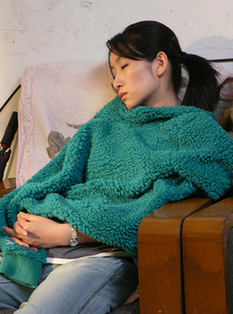上课时躲在书后面打盹儿,开会时用手挡着眼睛打盹儿,被逮着了就拿“春困、秋乏、夏打盹儿,睡不醒的冬三月”来做借口。大概每个人都经历过这样的情形吧,咱们今天就来说说这个“打盹儿”的英文说法。

A nano nap is a period of sleep which lasts between 15 and 30 seconds. It is generally involuntary, and often occurs when people are incredibly tired and bored. Many office workers and students are familiar with the concept, thanks to falling asleep during meetings and classes.
“打盹儿”(nano nap)指持续时间在15到30秒之间的小睡状态。这种睡眠状态通常是无意识的,多数是在人们极度疲劳和无聊的时候出现的。很多办公室职员和学生都对这个词很熟悉,因为他们经常会在开会或者上课的时候“打盹”。
For example:
He was caught taking a nano nap during the conference call.
他在电话会议上打盹儿被发现了。
Although napping in general is believed to be beneficial, the benefits of the nano nap are dubious, since one is generally not asleep long enough to truly relax. In fact, since one usually feels guilty and stressed when waking up from a nano nap, it is entirely possible that the nap may actually make the napper feel worse.
虽说小睡对身体有好处,但打盹的好处却值得怀疑,因为人在打盹的时候睡眠时间不够长,因此也不能完全放松。事实上,人在打盹儿醒来后通常会觉得愧疚或者有压力,所以打盹很有可能会让人醒来之后感觉更糟糕。
相关阅读
(中国日报网英语点津 Helen 编辑)